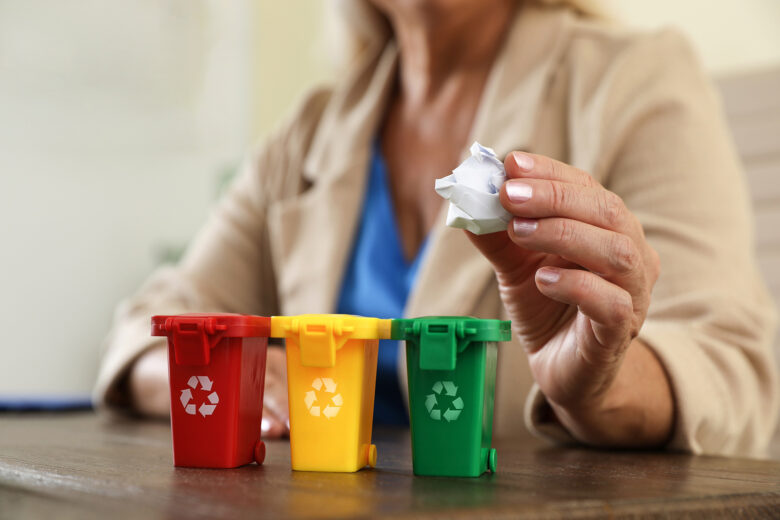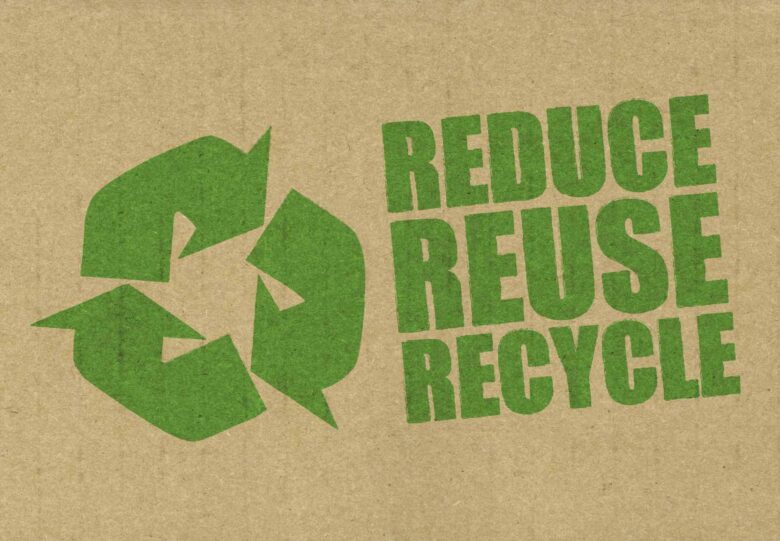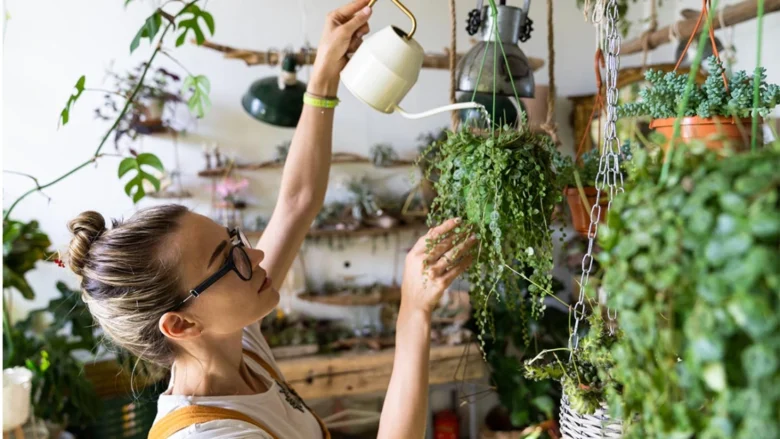As individuals, it can sometimes feel like the actions we take to protect the environment are small and insignificant in the face of global challenges like climate change. However, the truth is that every little bit counts, and implementing the 3Rs (reduce, reuse, recycle) in our daily lives is a simple yet effective way to make a positive impact.
By implementing the 3Rs in our daily lives, we can each positively impact the environment. While it may seem like a small step, the collective impact of these individual actions can be significant in addressing global environmental challenges such as climate change.
But what exactly do the 3Rs mean, and how can we integrate them into our lives? Let’s take a closer look.
Contents
Reduce

Source: euinfo.rs
The first principle of the 3Rs (reduce, reuse, recycle) is to reduce, which refers to the idea of minimizing our consumption and waste. This can be achieved in a variety of ways, such as:
- Choosing products with minimal packaging
- Using a reusable water bottle instead of disposable plastic bottles
- Bringing your own reusable bags to the grocery store
- Avoiding single-use plastics like straws and utensils
- Turning off lights and appliances when not in use to save energy
- Reducing our consumption not only helps to minimize the amount of waste we produce, but it also has the added benefit of saving us money in the long run.
Reuse
The second R, reuse, involves finding ways to use an item multiple times instead of throwing it away after a single use. Some examples of how to reuse items include:
- Using a refillable pen instead of disposable pens
- Donating gently used clothing and household items instead of throwing them away
- Upcycling old items into something new, such as turning a t-shirt into a tote bag
- Using a reusable coffee cup or travel mug instead of disposable cups
- Fixing broken items instead of replacing them
- Reusing items not only helps to reduce waste, but it can also be a creative and satisfying way to give items a new lease on life.
Recycle
The final R, recycling, refers to the process of turning used materials into new products. This can be as simple as separating your paper, plastic, and metal items into designated recycling bins, or it can involve more complex recycling processes for items like electronics or batteries.
While recycling is an important step in the waste management process, it’s important to remember that reducing and reusing should always be the first priorities. Recycling consumes energy and resources, so the less we have to recycle, the better it is for the environment.
Easy Ways to Incorporate the 3 R’s into Your Daily Routine

Source: britishsoftdrinks.com
Implementing the 3Rs (reduce, reuse, recycle) into your daily routine can seem like a daunting task, but it doesn’t have to be! Here are some easy ways to incorporate the 3Rs into your daily routine:
- Start small: Begin by making a few small changes, like using a reusable water bottle or bringing your own grocery bags. As you get more comfortable with these habits, you can gradually add more sustainable practices into your routine.
- Use reusable containers: Instead of using disposable plastic containers, invest in a few reusable containers for storing leftovers or packing your lunch. These can be used over and over again, saving you money and reducing waste in the long run. You can also use refillable cleaning products.
- Go digital: Many of us rely on paper for everything from bills and receipts to notes and lists. Consider going digital whenever possible to reduce your paper usage. This can be as simple as opting for electronic billing or using a note-taking app instead of physical notebooks.
- Recycle properly: Make sure you understand what can and cannot be recycled in your area, and set up designated recycling bins for paper, plastic, and metal. This will make it easier to recycle properly and reduce the amount of waste that ends up in landfills.
The 3Rs and Your Wallet: How Going Green Can Save You Green
Going green doesn’t have to be a financial burden – in fact, implementing the 3Rs (reduce, reuse, recycle) can actually save you money in the long run. Here’s how:
- Reduce consumption: Buying fewer items and choosing products with minimal packaging can save you money in the short term and reduce long-term expenses. For example, investing in reusable water bottles instead of buying disposable plastic bottles can save you money on beverages and reduce your trash output.
- Reuse items: Instead of buying new items, try to find ways to reuse what you already have. This can be as simple as mending clothes or using a refillable pen instead of a disposable one. Not only will you save money by not having to buy new items, but you’ll also be giving your possessions a longer lifespan.
- Recycle: Certain Recycling materials, like aluminum and plastic, can actually earn you money through recycling programs or by selling your recycled items. Additionally, recycling can save you money on trash disposal fees and reduce the need for new resources to be extracted and processed, saving energy and reducing costs.
Beyond the 3Rs
While reducing, reusing, and recycling are all important actions we can take to protect the environment, there are many other ways we can make a positive impact as well. Some additional steps we can take include the following:
Supporting environmentally-conscious companies and products

Source: ownr.co
- Planting trees and gardens to absorb carbon dioxide and provide habitats for wildlife
- Supporting policies and initiatives that prioritize the environment and sustainability
- Educating ourselves and others about environmental issues and how we can make a difference
Conclusion
It’s easy to feel like our individual actions can’t make a difference in the face of global environmental challenges, but the truth is that every little bit counts. By implementing the 3Rs and taking other steps to reduce our impact on the planet, we can collectively make a significant difference in the health and well-being of our planet and its inhabitants.
So don’t be discouraged – every action you take, no matter how small, is a step in the right direction. With a little bit of effort and creativity, we can all work towards a more sustainable and environmentally-friendly future.
